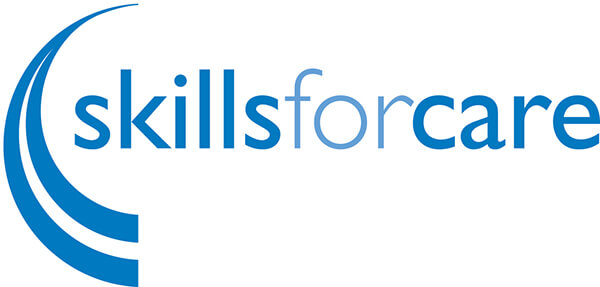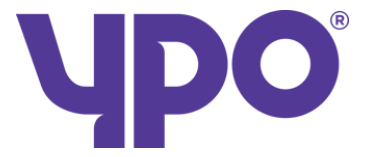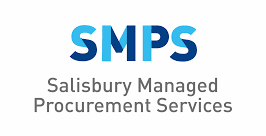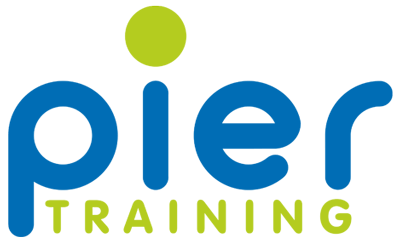COURSE
L3 Apprenticeship Standard for Senior Healthcare Support Worker
Aims of this qualification

The apprenticeship standard provides the learner with a high level of the Skills, Knowledge, values and Behaviours required of the Senior Healthcare Support Worker. On completion of this apprenticeship the learner will become competent to fulfil the role as a Senior Healthcare Support Worker.
Pathways available through an accredited Diploma embedded within this apprenticeship standard are as follows:
- Adult nursing support – Providing care and support for adults as part of the nursing team. Some of the individuals, the adult nursing support worker cares for will have short-term needs for example, if they have a wound which requires dressing. Others may have long-term conditions which affect them every day, all their lives. Many individuals will have more than one condition, and some will need round the clock care for all their personal needs including feeding, washing, going to the toilet as well as for their clinical needs.
- Maternity support – Providing care and support for women, babies and their families as part of the maternity team. The maternity support worker will contribute to the care of women antenatally and during birth, and care for women and babies postnatally. They support new parents to care for their baby and to develop confidence and bonding.
- Theatre support – Providing care and support for individuals before, during and after operations as part of the multi-disciplinary theatre team. They will support individuals as they are preparing to go into theatre, reassuring them if they are anxious, and helping them move them back to recovery following their procedure. The theatre support worker will support the operating team by checking individuals into the theatre department, preparing equipment, counting swabs or other instruments and measuring fluids. They may be involved in routine, traumatic and emergency surgery.
- Children and young people support – Providing care and support for babies, infants, children and young people as part of the children’s team. They work within guidelines and legislation designed to protect and support children and young people, recognising the different needs and rights they have at different ages and stages of their development. The children and young people support worker promotes person and family-centred care, including looked-after children, and working in partnership with parents, carers, families and other services and agencies.
- Allied Health profession – therapy support – Providing care and support for individuals through therapeutic activities as part of a multi-disciplinary team. Illness, disability or a change in life circumstances often means that individuals have to learn or be supported to do things in new and different ways. This can change the pattern of a life-course, but individuals can often expect to regain and enjoy a quality of life with support and rehabilitation. Some individuals may have short-term needs, others may have long-term physical and/or mental ill health or a learning disability that affects their independence, function or way of living. The therapy support worker will be required to work with the individual either on their own or within a group setting. They may also work with others to support the individual eg training carers or working with families.
Job Roles this qualification is suitable for:
Senior Healthcare Support Workers help registered practitioners in delivering healthcare services to people. As an experienced Healthcare support worker, the learner can carry out a range of clinical and non-clinical healthcare or therapeutic tasks. This can be under the direct or indirect supervision of the registered healthcare practitioner.
The learner provides high quality and compassionate healthcare following standards, policies or protocols and is always acting within the limits of their competencies. The learner may work in a range of services like the NHS hospitals, private hospitals, community, health or day care unit, birth centre or midwifery led unit, operating theatre, nursing or care home, assessment centre, hospice, school, prison, GP surgery, charity or voluntary organisation. The learner may work in partnership with individuals, families, carers and other service providers.
Duties are delegated to the learner in line with the care plans. The learner will need to use their knowledge, experience and understanding to take decisions within their area of responsibility. The learner may supervise or guide the less experienced staff within their team.
Outcome:
- How to carry out a routine and complex clinical or therapeutic task delegated to them through care plans and delegation protocols used in the organisation
- Collate, record and share client’s history
- Understanding of indicators for good physical and mental health in relation to the demographic of individuals the learner is required to work with
- The importance of fluids, nutrition and food safety, ways to signpost individuals in public health interventions or other services as appropriate
- How to support a person’s comfort and wellbeing, the signs of a person whose health and wellbeing is deteriorating or who is experiencing pain or discomfort
- The main types of mental ill-health and their impact on people’s lives. Indicators for mental health capacity, the importance of early diagnosis in relation to cognitive issues and the possible signs of mental ill health and learning disability in Reasons on why the external factors like depression, delirium or the normal ageing process may be mistaken for mental ill health. How changes in cognition can impact health and wellbeing and how to report changes and deterioration
On Programme Learning:
The learner’s Knowledge, Skills and Behaviour outcomes will be assessed en-route to the final synoptic End Point Assessment.
The programme consists of the following:
- Senior Healthcare Support worker standard
- Level 3 Diploma in Healthcare Support
- Functional skills in maths at Level 2 (Mandatory for age 16-18 year old learners, unless a valid exemption is provided, discretionary for learners aged 19+ ). Speak with our team to find out more about recently updated functional skills policy
- Functional skills in English at Level 2 (Mandatory for age 16-18 year old learners, unless a valid exemption is provided, discretionary for learners aged 19+ ). Speak with our team to find out more about recently updated functional skills policy
- End Point Assessment
How is it delivered?

The learner will be allocated a qualified Tutor to support the full completion of the qualification and prepare for end point assessment. The tutor will meet with the learner on a regular basis in the workplace to conduct assessments which will be planned with the learner and their manager; assessment will also be conducted through a blended model of e–Learning and face to face delivery. The Tutor will manage the learner’s portfolio of evidence using an online electronic system called OneFile and provide regular updates about progress. The learner can contact their Tutor in between visits to discuss any aspect of the qualification and will have access to their individual learner’s portfolio.
End Point Assessment
An End Point Assessment will be carried out by staff from an independent End Point Assessment centre approved on the Register of End Point Assessment Organisations (EPAO).
The End Point Assessment will test the entire apprenticeship standard and will be undertaken as follows:
- An observation of practice with questions (2 hours)
- Professional discussion underpinned by a portfolio evidence (60 minutes)
The End Point Assessment requires the learner to demonstrate they have achieved the standard.
Assessment Gateway
Before the apprentice is ready to undertake the End Point Assessment by their employer and learning provider, they are required to:
- Receive confirmation from the employer that the apprentice is working at or above the occupational standard as a Senior Healthcare Support Worker
- Achieve the Level 3 Diploma in Healthcare Support
- Achieve Level 2 maths and English Functional Skills (Mandatory for age 16-18 year old learners, unless a valid exemption is provided, discretionary for learners aged 19+ ). Speak with our team to find out more about recently updated functional skills policy
- Submit a portfolio of evidence
- Complete the learning journal. The learner needs to document and reflects on their development (knowledge and skills) as well as their approach to the workplace (the values and behaviours).
- Ensure the learning journal is completed during the 3 months leading up to the planned date of the End Point Assessment
The purpose of the end point assessment is to test (in a synoptic way) the skills, knowledge and behaviours of the learner as set out in the apprenticeship standard.
End Point Assessment provides learners with a showcase opportunity to provide oral and documentary evidence of their knowledge, skills and behaviours developed throughout the apprenticeship. This also enables the independent assessor to test and assess knowledge, skills and behaviours by observing the learner in the course of their normal work.
How long will it take to complete?
Progression routes:
Upon completion, learners can pursue a L5 Healthcare Assistant Practitioner apprenticeship standard or may be eligible to apply for an Operating Department Practice (ODP) or a Nursing Degree apprenticeship.
Platforms we are approved on for this apprenticeship standard.


If you have already discussed joining a cohort with Pier Training, please click here to apply for this course. A Pier Training representative will contact you to discuss the next steps of your enrolment.
For new enquiries please submit your request here and a representative from Pier Training will contact you shortly.
